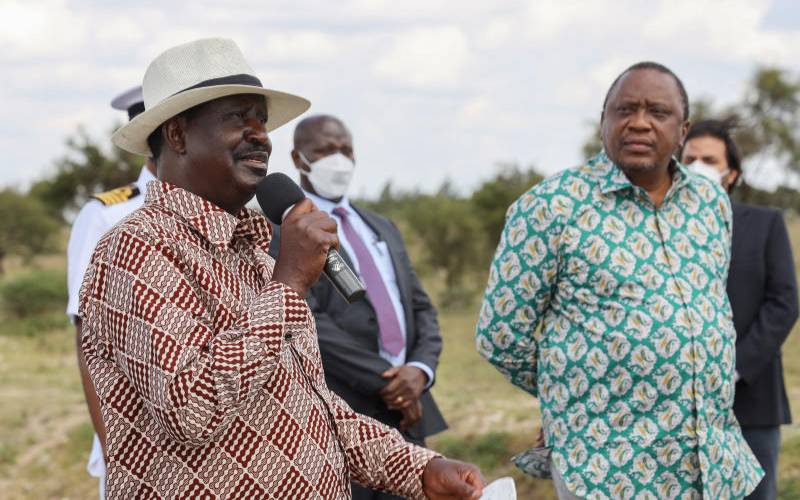
On Wednesday evening, information began filtering through the cracks. President Uhuru Kenyatta was at the Nairobi residence of ODM leader Raila Odinga. Coming in the wake of open shows of discontent among ODM bigwigs on the status and fate of the Bridging Bridges Initiative (BBI), the canard got pundits wondering. What could be afoot?
ODM was feeling used and cheated. It seemed ready to bring down the BBI temple on everyone. In the interest of the BBI and other strategic interests in the Jubilee Party, there was need to appease the Orange party, at least for now. The President seemed to be on an appeasement mission.